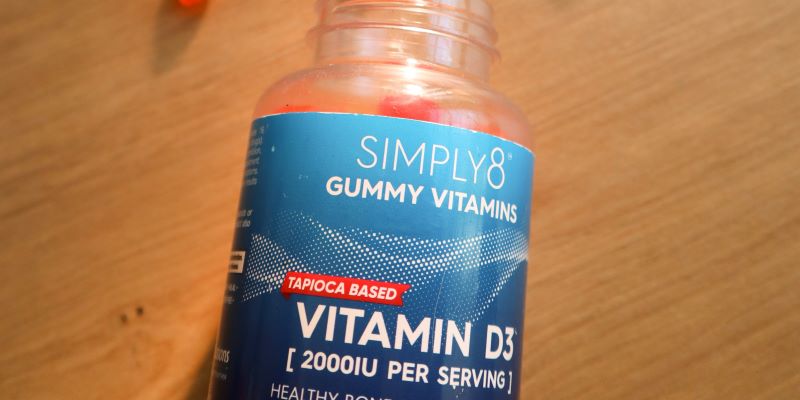People are becoming more curious about how vitamin D might affect psoriasis. Scientists are looking into whether having the right amount of vitamin D, from food or pills, can help treat this skin condition. Psoriasis causes itchy, flaky spots on the skin.
Recent discussions at a renowned nutrition conference highlighted a study exploring this very topic of psoriasis and vitamin D. While the data is still in its early stages and awaits further validation through peer-reviewed journals, initial impressions suggest that increasing one's vitamin D intake might serve as a potential strategy to reduce the severity of psoriasis. Many think taking vitamin D can help with health and might be safe.
But some are unsure if taking vitamin D pills can really help with psoriasis. Some early studies say eating foods with vitamin D or taking vitamin D pills might help those with psoriasis, but doctors believe more studies are needed.
Psoriasis is a long-lasting skin problem that many people have. It happens when the body's defense system works too hard and causes skin to grow too fast. This makes thick, flaky, red spots on the skin, mostly on the head, elbows, and knees.
Cause Of Psoriasis
We don't really know what causes psoriasis. So, studying things like how vitamin D affects psoriasis is important. The thought is this: if having more vitamin D helps with psoriasis, it could be an easy way to help treat the skin problem.
To put it into context, imagine if maintaining or improving vitamin D levels through something as straightforward as diet changes or supplements could benefit those suffering from psoriasis. This approach would be invaluable, particularly given the limited modifiable methods available today to address severe psoriasis.
The Emerging Role of Vitamin D Cream for Psoriasis
The use of vitamin D creams, especially the synthetic kind, is being recognized as a novel treatment option for psoriasis. However, acquiring these creams typically necessitates a medical prescription. The preliminary findings suggest that adopting a diet rich in vitamin D or considering oral supplementation could be beneficial for those with psoriasis.
Contemplating Vitamin D Supplements for Psoriasis Management
With few lifestyle factors that can be tweaked to potentially influence psoriasis (like sun exposure, stress, and alcohol consumption), the idea of simply increasing vitamin D intake might appear enticing for those afflicted by the condition.
However, there's a word of caution. Given the nascent stage of this research, it's too premature to advocate for self-supplementation of vitamin D. Collaborating with a healthcare specialist remains essential, especially when pondering vitamin D supplementation. Although rare, excessive vitamin D can lead to complications like a surge in calcium levels in the blood, which might cause symptoms like nausea or frequent urination.
For those considering this route, a proactive consultation with their healthcare provider is advised. A blood test might be deemed necessary to ascertain vitamin D levels. Pending results, a tailored plan to integrate more vitamin D might be proposed.

The Importance of Vitamin D in Daily Health
Despite the particular emphasis of recent research on the connection between psoriasis and vitamin D, it's essential to understand that a significant portion of the general population grapples with insufficient vitamin D levels. This deficiency isn't exclusive to those with psoriasis. In fact, an alarming number of individuals in the U.S. exhibit vitamin D levels that fall short of what's considered adequate for maintaining bone health and overall well-being.
While supplements can serve as a source of vitamin D, experts typically advocate obtaining most nutrients directly from our diets. A plethora of natural food sources can provide the essential vitamin D that our bodies need.
Natural and Fortified Food Sources of Vitamin D
Some of the most potent natural sources of vitamin D include:
- Fatty fish varieties like trout, salmon, tuna, and mackerel
- Beef liver
- Eggs, with an emphasis on including the yolk
- Mushrooms
- Cheese

In the U.S., a concerted effort has been made to fortify various foods with vitamin D, ensuring wider access to this vital nutrient. A notable example is the voluntary fortification of the American milk supply, which typically provides around 3 micrograms of vitamin D per cup. Other vitamin D-fortified foods that can be commonly found include:
- Plant-based milk alternatives such as soy, almond, and oat
- Ready-to-eat breakfast cereals
- Orange juice
- Yogurt
- Margarine
Vitamin D and Its Potential Role in Psoriasis Management
Scientists are really curious about how vitamin D from food or cream can help people with psoriasis. They're still trying to figure out if more vitamin D can really make psoriasis better. Many doctors hope that learning more about this can help treat the skin problem. But they also know they need to study it more before giving advice on it.




